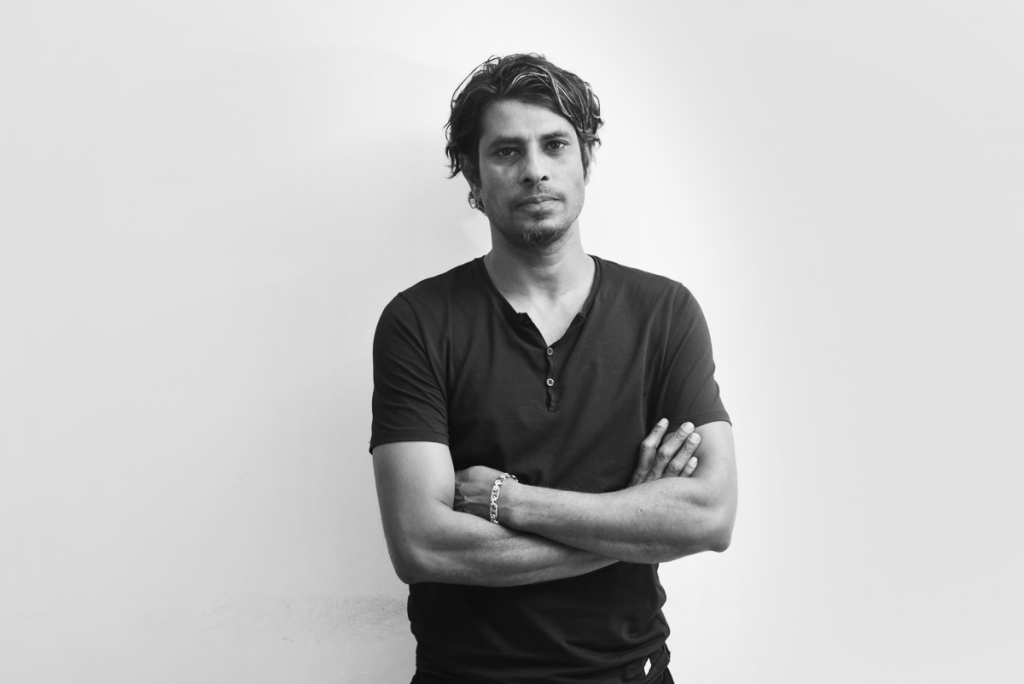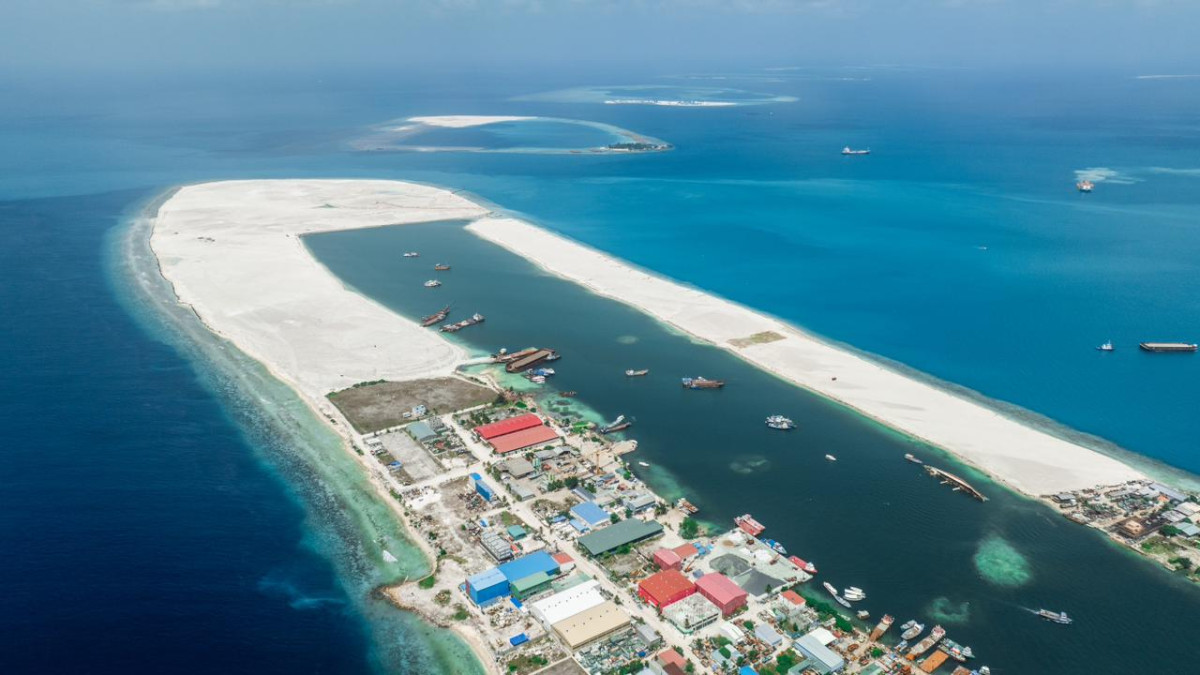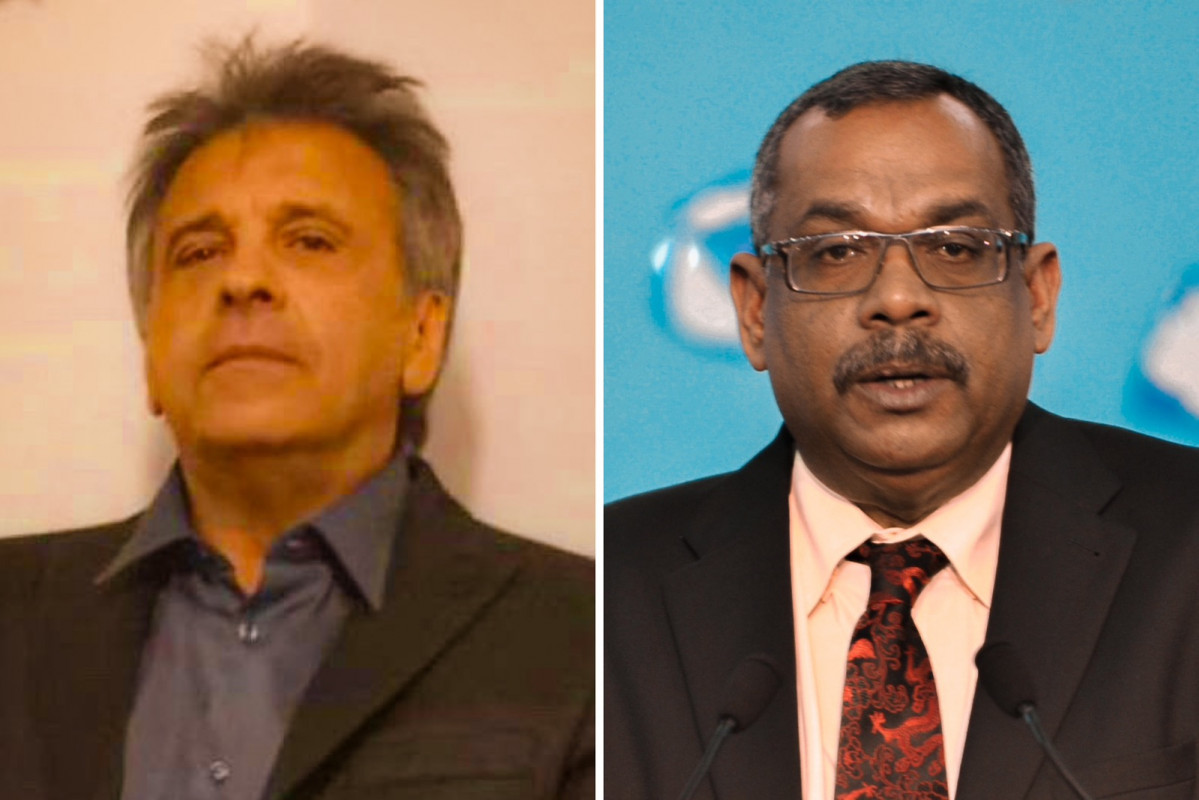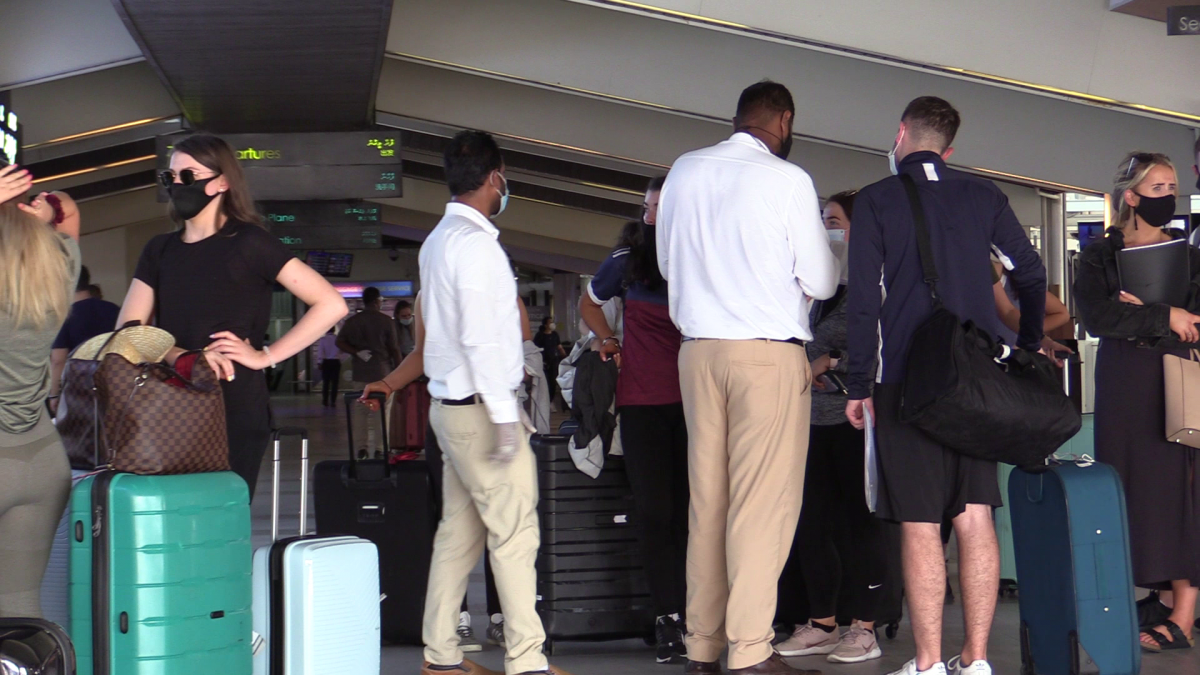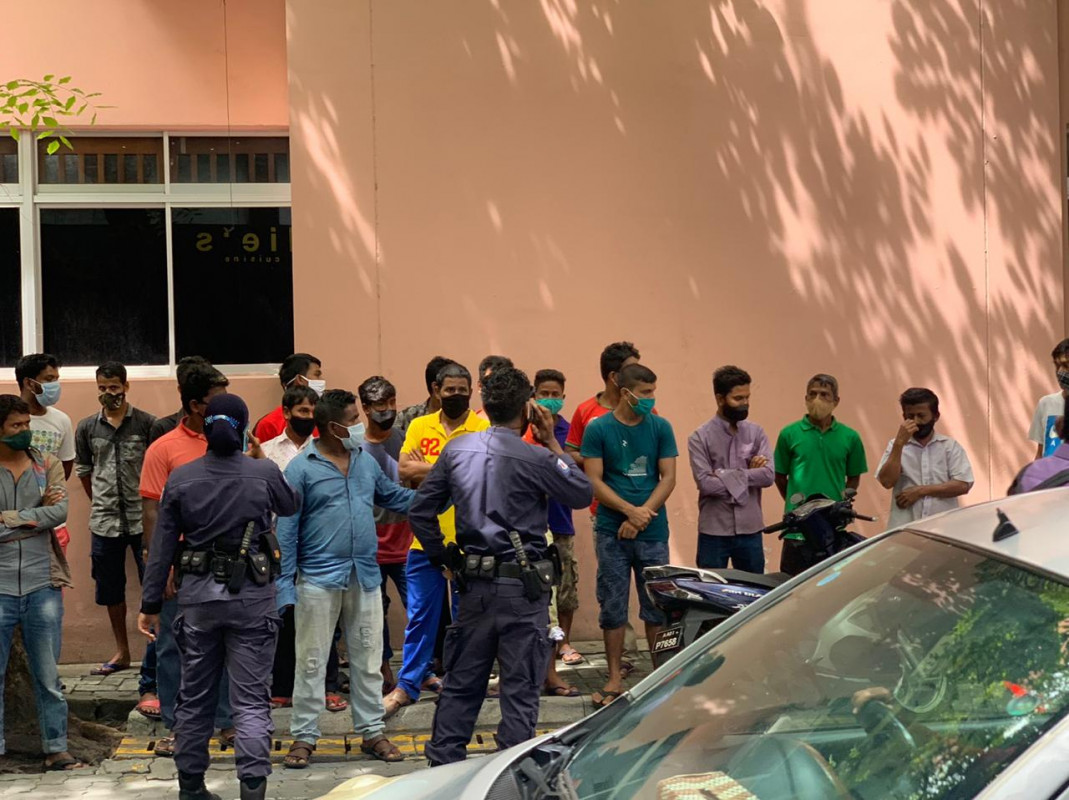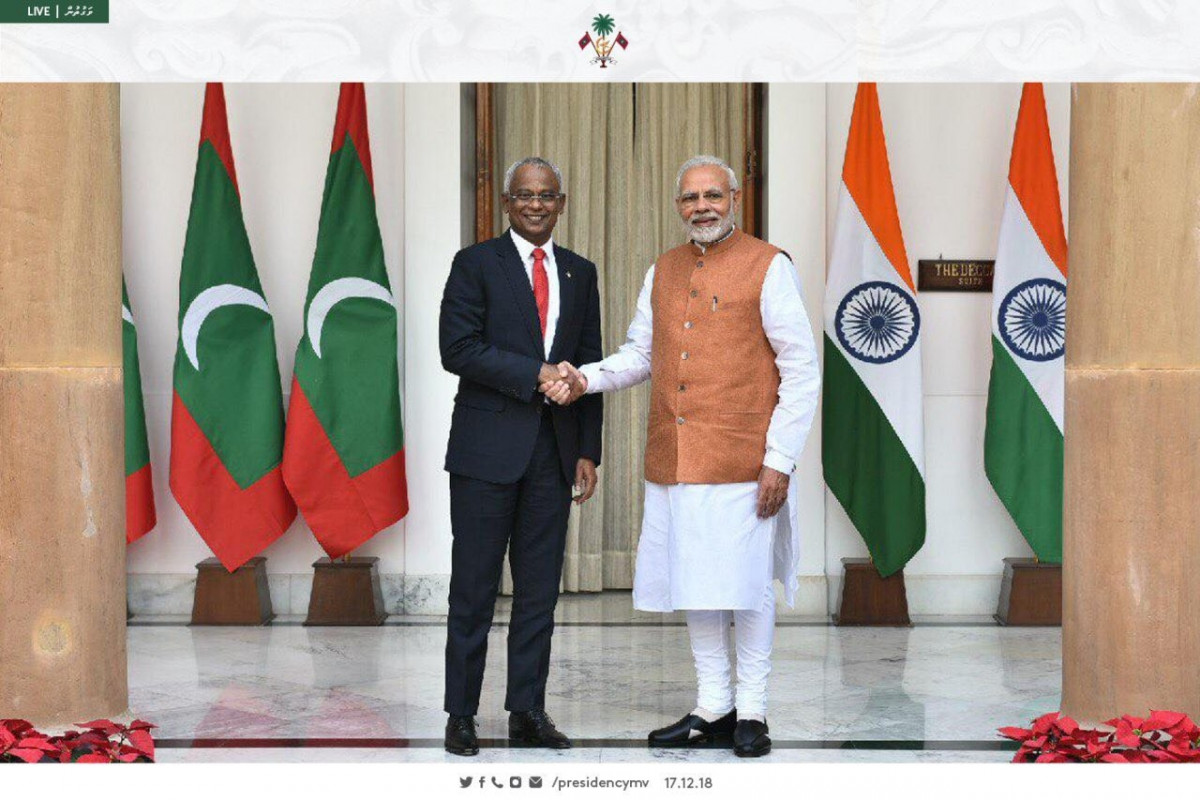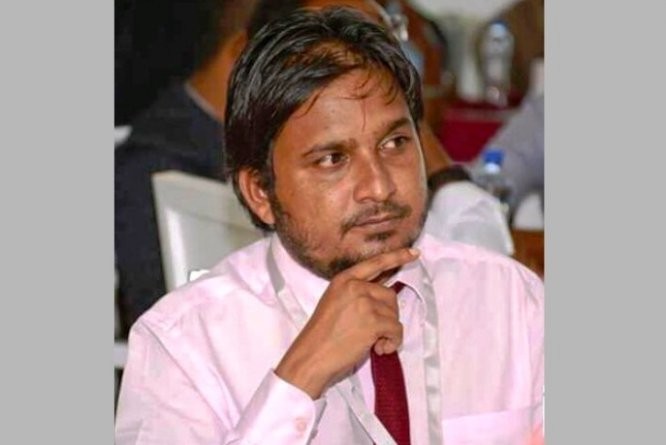President concludes visit to L. Gan
The third Viavathi Raajje Conference was held in Gan Island of Laamu Atoll
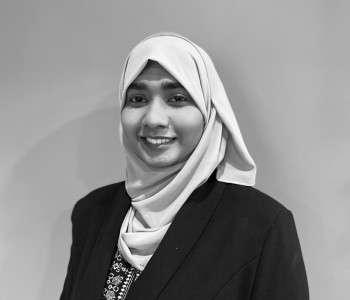
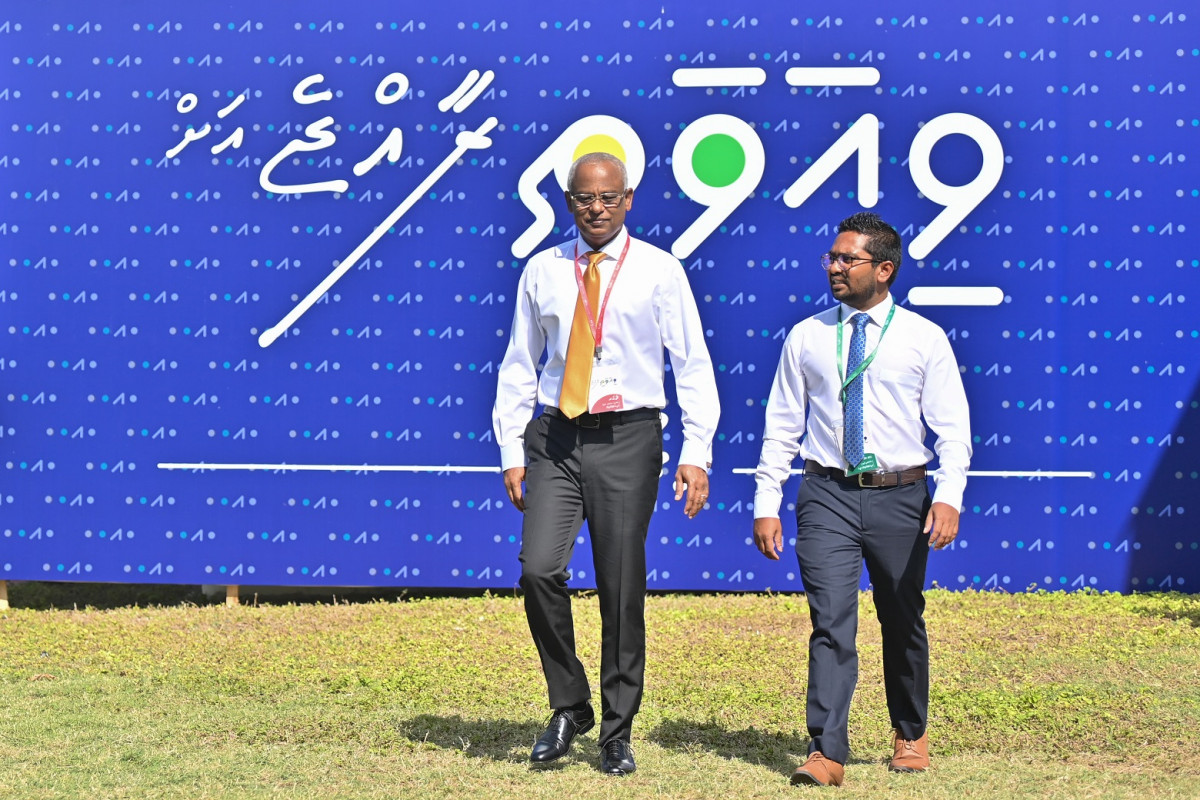
President Ibrahim Mohamed Solih during the Viavathi Raajje Conference
President Ibrahim Mohamed Solih has concluded his visit to Gan Island in Laamu Atoll to host the third Viavathi Raajje conference.
The President concluded his visit to Gan island and returned to Male' on Monday.
The third Viavathi Raajje Conference was held in Gan Island of Laamu Atoll from September 11-12, 2022.
The two-day conference featured four main sessions with presentations and discussions on a variety of topics. These included gender equality, the formulation of land-use plans, fiscal autonomy of local councils and social welfare.
Participants of this conference included city council mayors, island council presidents and presidents of Women’s Development Committees (WDC) from the southern atolls of Maldives: Dhaalu, Thaa, Laamu, Gaafu Alif, Gaafu Dhaal Atolls, Fuvahmulah City and Addu City.
The President was accompanied at the conference by government ministers, Parliament members of the southern atolls, policy executives from the President’s Office, and technical experts from various institutions including state-owned enterprises.
During the opening ceremony of the third Viavathi Raajje Conference on Sunday, President Solih stated that the most significant objective of holding Viavathi Raajje conference was to review the speedy and effective implementation of the current government's decentralization policy.
In his remarks, President Solih noted that the objective of reviewing the speedy and effective implementation of the decentralization policy was to ensure that the people’s developmental aspirations are met.
Additionally, he noted that this is to identify ways to strengthen and improve governance based on feedback.
President Solih stated that the conference offered a national-level platform for discussing policies and assured that the administration would consider the implementation of the decisions made at this platform.
At the inaugural session, President Solih launched seven handbooks made by the Local Government Authority (LGA) aimed at overcoming the challenges faced in the implementation of local governance.
During the first session of the conference President Solih stated that the goal of the current administration was to increase the number of women in executive roles. The discussions of the first session were focused on gender equality.
President Solih stated that the government's key policy is to empower women and provide them with equal opportunities in political, economic, and social settings. To this effect, President Solih noted the gender equality action plan compiled by the administration is an effort to provide equal opportunities for women in all sectors.
The President emphasized on the administration's efforts thus far to achieve this goal, stating that women's involvement in decision-making has increased, with female ministers accounting for 33 percent of the current cabinet.
He noted that the male-female ratio of ambassadors in the Maldives was 50-50, and that allocating one-third of council seats to women resulted in 39.8 percent female representation in the island councils as well.
President Solih reiterated that the aim is to increase the number of women in positions of leadership and policymaking level.
During the second session of the third Viavathi Raajje Conference, President Solih stated that it is important to simplify the process of developing land use plans of outer islands.
He noted that amending laws, if necessary to address recurring issues that arise while formulating the plans is also important.
Speaking at the session which focused on land use plans of islands, President Solih noted that the island councils have been experiencing difficulties in developing the plans, which has hindered the development of their communities. Hence, the President noted that it was important to make the process easier for the councilors and to amend any laws that were impeding the process.
At the third session of the conference, focused on the fiscal autonomy of local councils, the President stated that councils should be more self-reliant in order to reinforce their performance.
During the session, President Solih emphasized on the importance of island councils finding their own source of income in order to become more self-reliant.
The President stated that the purpose of the session was to engage island council members and the Women’s Development Committee (WDC) representatives in discussions to enable economic empowerment for the local residents. He added that one of the main objectives of the Decentralization Act was to give island councils complete fiscal autonomy.
President Solih stated that the budget allotted to the councils from the state budget grows at an exponential rate each year. However, he noted that there is still room for improvement and that there are ways to increase the efficiency and self-sufficiency of the councils and WDCs.
The fourth and final session of the conference focused on building a resilient community. During the session President Solih stated that the administration and all of its agencies are now collectively working towards overcoming the challenges posed by climate change.
President Solih addressed the effects and consequences of climate change in the Maldives and other parts of the world. He stated that climate change is the most serious global threat, and that public opinion on the subject is shifting.
The President asserted that climate change affects everyone around the world, regardless of nation size, and emphasized on the importance of working together to address this imminent threat.
Over 270 individuals took part in this conference, along with 107 council members and WDC representatives.
